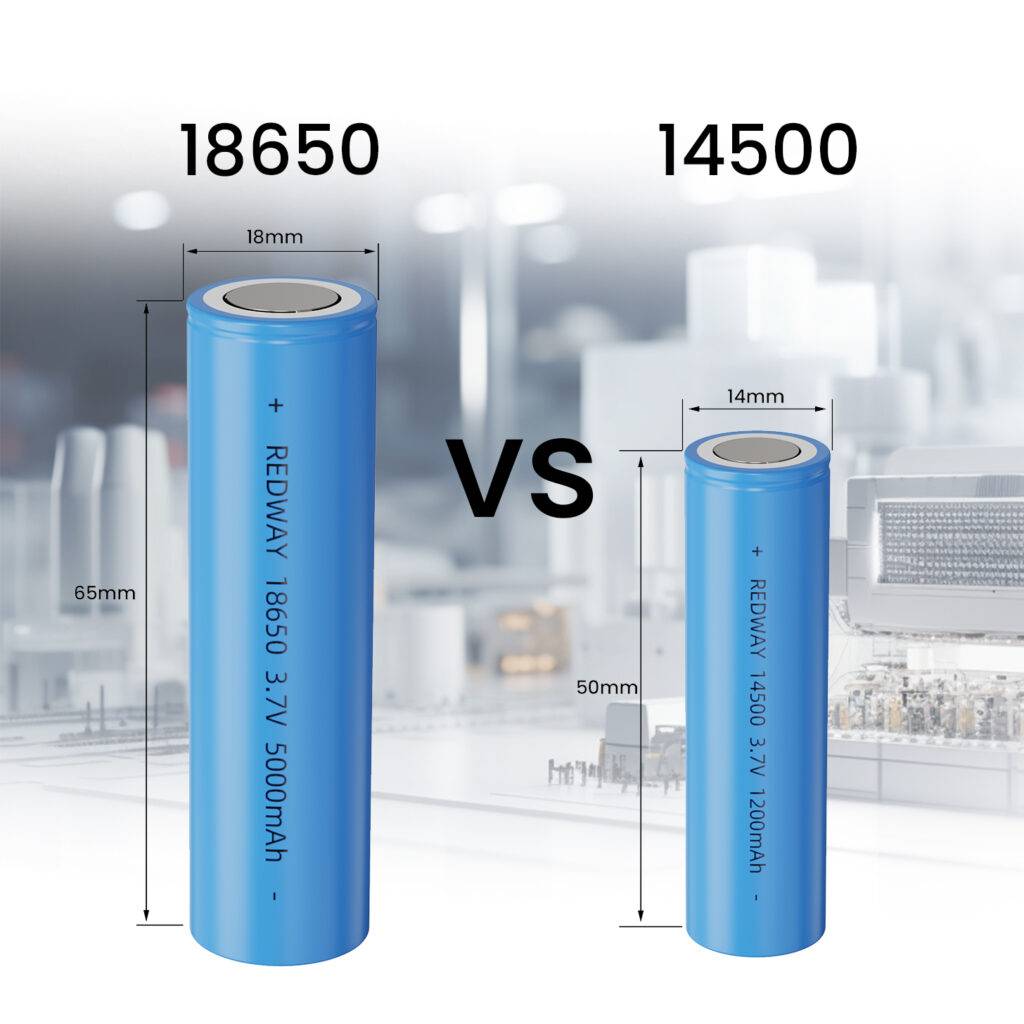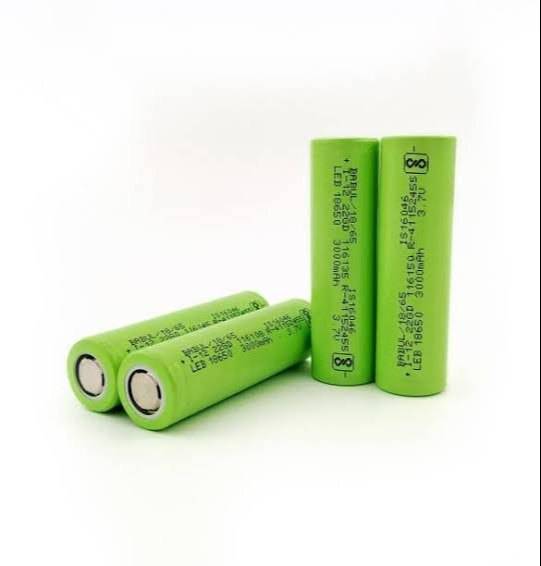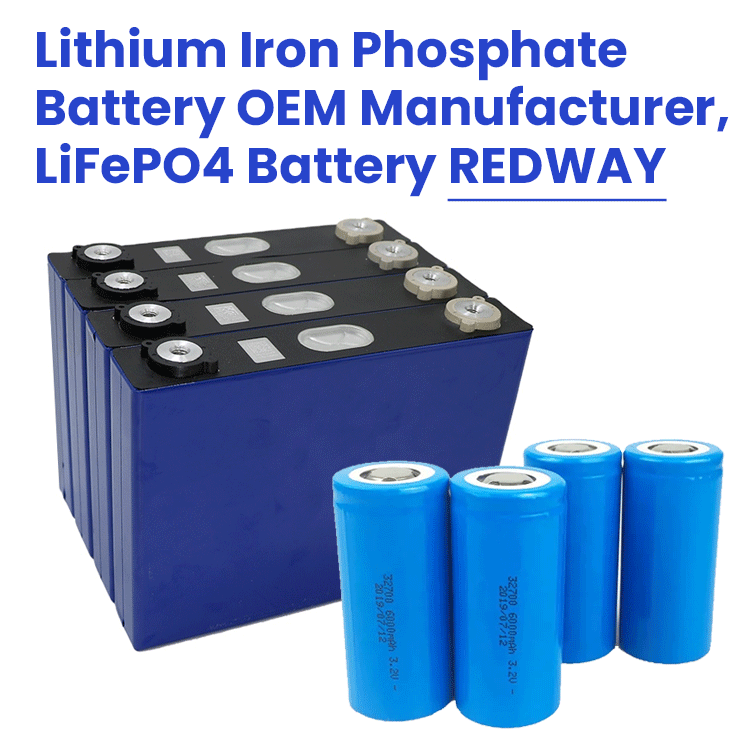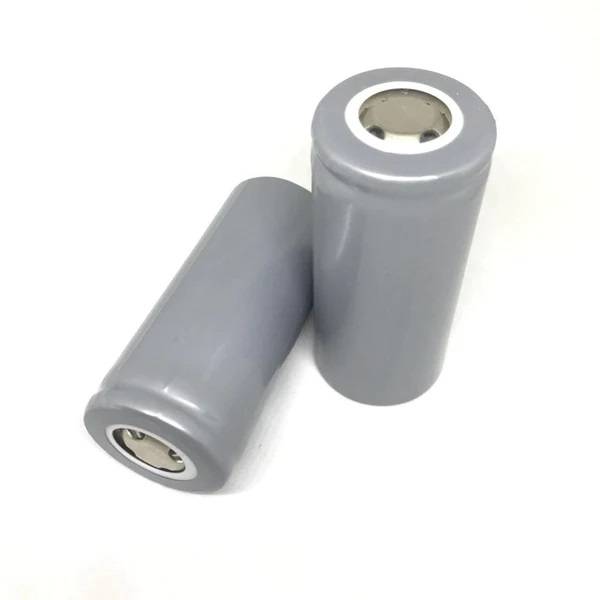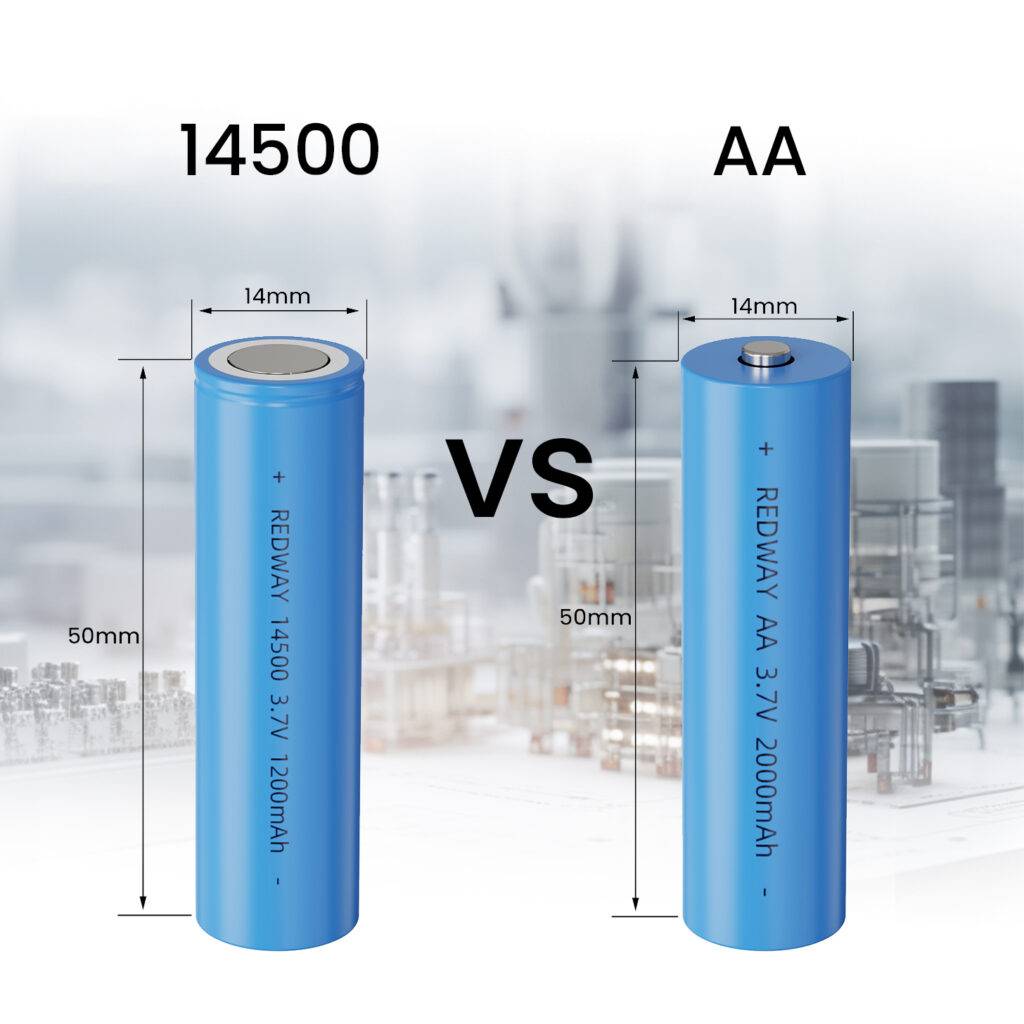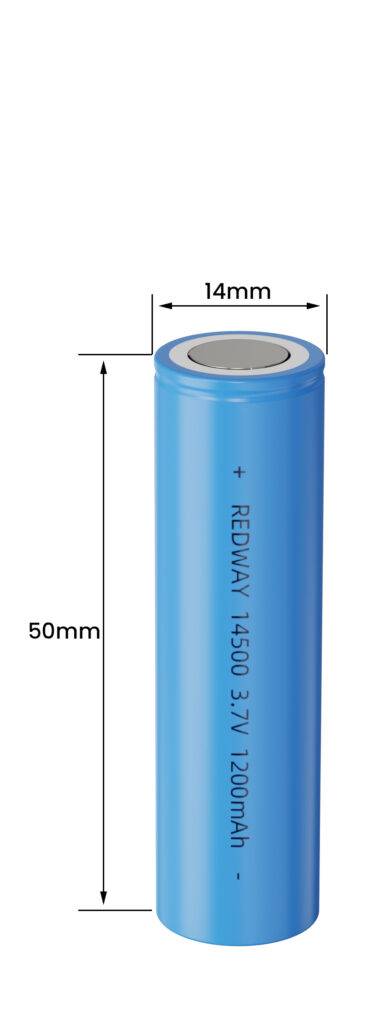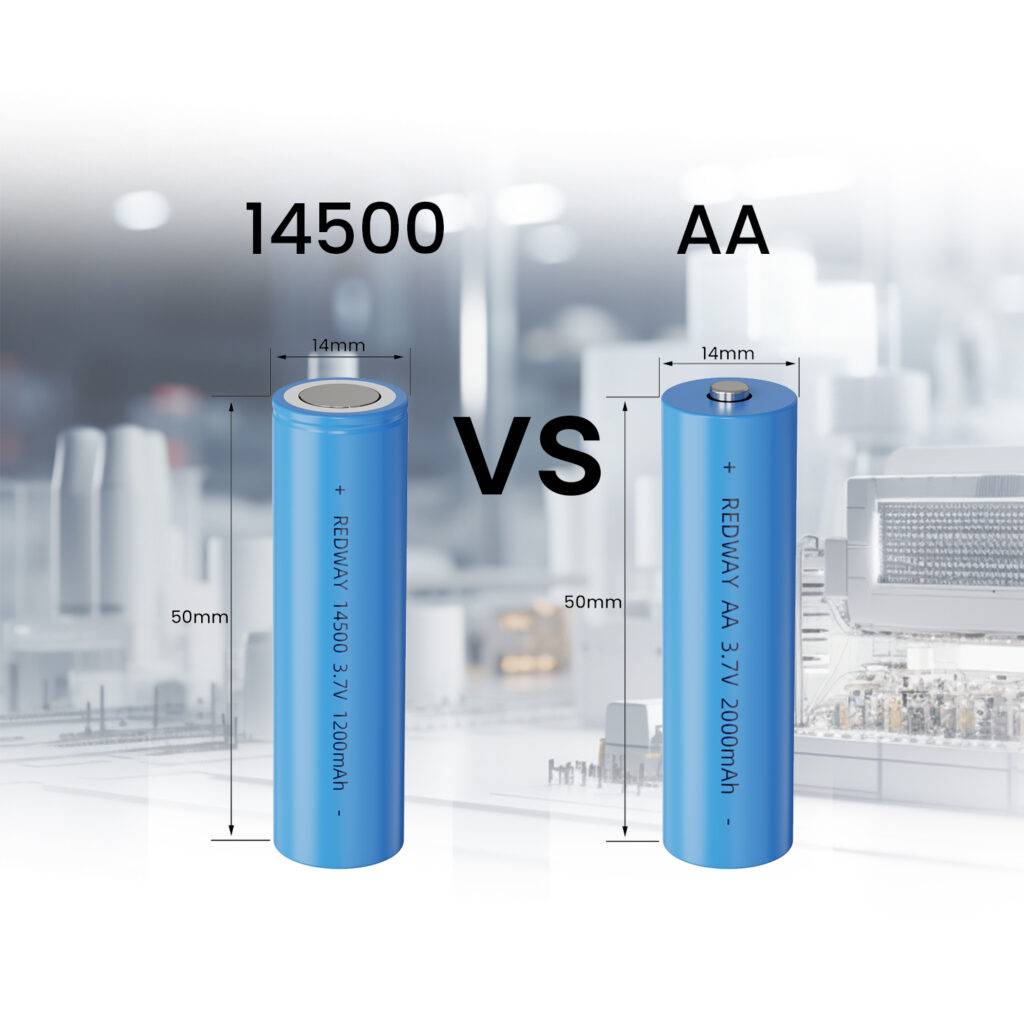Are you tired of constantly replacing your batteries? Do you struggle to choose between 18650 and 14500 lithium batteries for your electronic devices? Look no further! In this blog post, we will compare the pros and cons of both battery sizes to help you make an informed decision. Whether you’re a gadget enthusiast or simply want longer-lasting rechargeable batteries, read on for our comprehensive analysis of the battle between the 18650 battery vs 14500 lithium battery.

#post_seo_title
What is an 18650 battery?
An 18650 battery is a lithium-ion rechargeable battery. The 18650 designation comes from the battery’s dimensions – it is 18mm in diameter and 650mm in length. The ’18’ refers to the diameter and the ‘650’ refers to the length. These batteries are often used in laptop computers, digital cameras, and other electronic devices.
Lithium-ion batteries are different from traditional lead-acid batteries in several ways. First, they do not contain any lead or mercury, making them more environmentally friendly. Second, they have a higher energy density, meaning that they can store more energy per unit of volume than lead-acid batteries. Third, they have a lower self-discharge rate, meaning that they will retain their charge for longer periods of time than lead-acid batteries. Finally, lithium-ion batteries can be discharged and recharged more times than lead-acid batteries without losing their capacity.
What is a 14500 lithium battery?
14500 lithium batteries are a type of rechargeable battery that uses lithium ions as the electrolyte. They are also known as Li-ion batteries or LIBs. 14500 lithium batteries have several advantages over other types of batteries, including:
1) Higher energy density: 14500 lithium batteries can store more energy than other types of batteries, making them ideal for high-drain devices such as digital cameras and flashlights.
2) Higher voltage: 14500 lithium batteries have a higher voltage than other types of batteries, which means they can power devices that require more power.
3) No memory effect: 14500 lithiuim batteries do not suffer from the “memory effect,” meaning they can be recharged without losing capacity over time.
4) Low self-discharge rate: 14500 lithiuim batteries have a lower self-discharge rate than other types of batteries, meaning they hold their charge longer when not in use.
The pros and cons of each type of battery
There are a few different types of batteries on the market these days, each with their own advantages and disadvantages. Here is a quick rundown of the most common types of batteries, and their pros and cons:
Lead Acid Batteries: Lead acid batteries have been around the longest and are the most common type of battery used in cars. They are also very inexpensive, making them a popular choice for budget-conscious consumers. However, lead acid batteries have a shorter lifespan than other types of batteries, and they also require more maintenance.
Lithium Ion Batteries: Lithium ion batteries are newer on the scene, but they are quickly becoming the battery of choice for many consumers. That’s because lithium ion batteries have a much longer lifespan than lead acid batteries, and they require less maintenance. Lithium ion batteries also tend to be more expensive than lead acid batteries, but many people feel that the extra cost is worth it for the improved performance.
Nickel Metal Hydride Batteries: Nickel metal hydride batteries are similar to lithium ion batteries in terms of performance and lifespan. However, they tend to be even more expensive than lithium ion batteries. Nickel metal hydride batteries are typically only found in high-end devices such as laptops and cell phones.
Which type of battery is better for specific purposes?
There are many different types of batteries on the market, each with its own advantages and disadvantages. When it comes to choosing the right type of battery for a specific purpose, there is no easy answer. Here are some things to consider when making your decision:
1. Cost: Lithium batteries tend to be more expensive than other types of batteries. If cost is a major consideration, you may want to choose another type of battery.
2. Capacity: Lithium batteries typically have a higher capacity than other types of batteries, meaning they can power your devices for longer before needing to be recharged. This can be a major advantage if you frequently use your devices for long periods of time without access to a power outlet.
3. Weight: Lithium batteries are often lighter than other types of batteries, making them ideal for portable devices that need to be carried with you on the go.
4. Temperature sensitivity: Lithium batteries can be sensitive to extreme temperatures, so it’s important to check the specifications of your battery before using it in extreme conditions.
How to choose the right type of battery
There are many different types of batteries available on the market today, so how do you know which one is right for you? The first step is to determine what type of device you will be using the battery for. For example, if you need a battery for a small electronic device, such as a watch or remote control, a coin cell battery would be a good option. If you need a battery for a larger device, such as a laptop or smartphone, then a lithium-ion battery would be a better choice.
Once you know what type of device you will be using the battery for, the next step is to consider the power requirements of the device. For example, if the device requires high power output, then a lithium-ion battery would be the best option. However, if the device only requires low power output, then another type of battery, such as an alkaline battery, would be more suitable.
After considering the power requirements of your device, the next step is to select a Battery capacity that can provide enough power to run your Device for desired time period without being recharged again. For example: if you want your laptop to run for 4 hours straight without needing to be recharged then we suggest opting for at least an 8-Cell Battery with 6600 mAh Capacity. In terms of price per capacity, Lithium Ion Batteries are almost always more expensive than Alkaline Batteries but they also tend to last significantly longer too so
Conclusion
In conclusion, while both the 18650 and 14500 lithium batteries have their advantages and disadvantages, the 18650 battery is typically more powerful and reliable. However, if you’re looking for a smaller, lighter option that can still deliver some decent power output then the 14500 lithium battery may be your best bet. Ultimately it comes down to which type of battery will better fit your device’s needs – so choose wisely!


